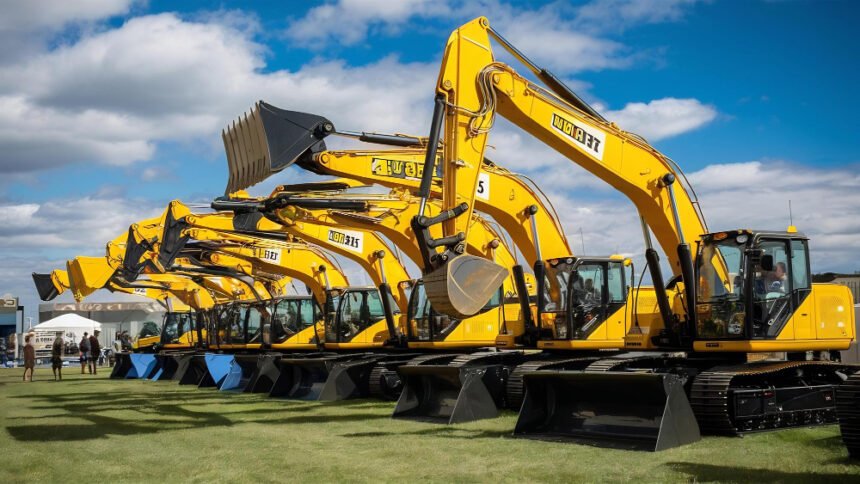Effectiveness, flexibility, and economics are three critical success factors for construction businesses that thrive today, which by nature are dynamic and demanding environments. Construction firms face many obstacles on projects, from budget restrictions and urgent schedules to client burden fluctuations; heavy equipment rental has emerged as an alternative solution that offers these construction firms the flexibility needed to overcome barriers while effectively managing complex environments like these. We examine some of its great benefits here for the construction sector:
1. Adaptability In The Selection Of Equipment
This is perhaps one of the biggest advantages of such heavy equipment rental: the tremendous flexibility attached to the choice of equipment.
The difference in scale and specification among various construction projects is enormous. Having so many pieces of equipment at his disposal, the contractor is always bound to adapt the tools most suited for a given task.
2. Economic Efficiency
Heavy equipment rental in Denver providers meet the unique requirements of each project in terms of economic efficiency. Often, construction projects incur large expenditures, and renting heavy machinery is one effective means by which contractors can address this expense effectively.
Renting equipment allows businesses to be more prudent with their capital allocation by not needing to invest vast sums in brand-new machinery. Rent agreements can be tailored according to project schedules and financial constraints for maximum flexibility; contractors can then access equipment required during the project duration while being accountable for paying its expenses themselves.
3. Access To Cutting-Edge Equipment
Equipment Heavy equipment rental companies remain current with the latest operational technologies and improvements. This allows contractors the ability to use the latest equipment without being responsible for the investment in new procurement and updated machinery. Construction projects are run effectively and safely, with the best quality, with the help of renting top-of-the-range modern equipment. The equipment is fuel-competitive, with advanced engines. The operator’s advanced ergonomic design has led to increased comfort, and advanced GPS systems enable high-precision grading.
4. Downtime Risk Mitigation
Construction downtime poses numerous hurdles; delays to projects, increased costs and dissatisfied contractors and clients are only some of the complications to contend with. Interruptions at work sites could arise for various reasons, such as unexpected repairs, equipment malfunctioning and maintenance duties. Contractors can reduce interruption risks by leasing from vendors who offer quality and well-maintained equipment lease packages. The majority of equipment rental firms regularly inspect and service their cars to guarantee peak performance free from problems. Rental firms frequently offer replacement or change services promptly in such instances to keep projects on schedule while at the same time minimizing downtimes for maximum productivity.
5. Scalability And Project Adaptability
Construction projects can often be unpredictable; schedules, budgets and scope can shift rapidly at times. Through the flexibility and scalability of heavy equipment rental, contractors are provided with just enough resources to satisfy a given project’s requirements fully. As with anything that involves humans, though, unexpected delays or changes to project scope occur, or additional work orders arise unexpectedly – the contractor has the flexibility to alter his equipment rental agreement to meet these dynamic project demands as necessary.
If you’re seeking academic support, explore our list of the Best Online Assignment Writing Websites for top-notch assistance.
6. Predominance Of Core Competencies
Construction firms with strong core competencies will be able to focus their resources and technical understanding on core operations like engineering, project management, and construction services while outsourcing equipment rental needs to rental companies. Contractors aim to maximize operational efficiencies and outputs of equipment they own to deliver exceptional results to clients with fewer interferences and administrative hassles associated with equipment ownership.
To learn more about the latest trends in the Earthmoving Industry, check out our comprehensive guide.
Conclusion
Conquering challenges and overcoming adversities are integral parts of being a professional in the construction industry. Heavy equipment rentals have increasingly become appreciated among construction firms due to their flexibility, cost-effectiveness, and risk reduction, as they use only cutting-edge machinery.


Leave a Reply